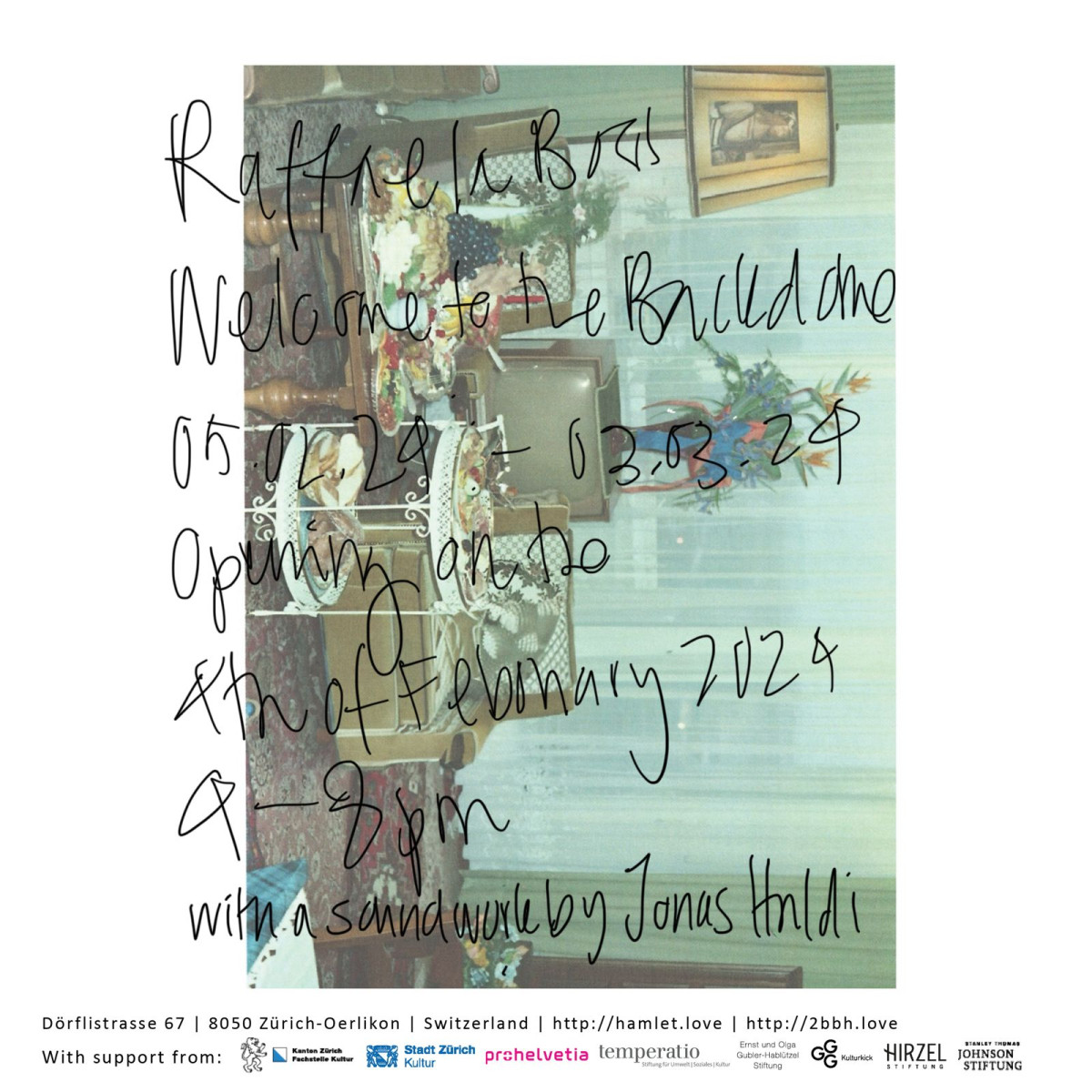Welcome to the Backdome Raffaela Boss mit einem sound work von Jonas Huldi
Zeiten:
Eröffnung: Sonntag, 04. Februar 2024, 16–20 Uhr
Geöffnet: 05. Februar – 10. März 2024
Last week I picked you up in a little green Peugeot and we managed to fit all of your works into the trunk with the back seats folded down. You told me about your grandparents, the color of their furniture, and the places you grew up in, which are now no longer there.
I understand that the shapes you offer me are frail and cannot comfort me in a moment of need. There is something familiar yet unsettling about the way you are suggesting a space – the very nature of it taunts me. A matrix of uncomfortably lit rooms. A chair, just a little too big, makes for a slight displacement in the signified object. Is it a real place? Perhaps. Either way, I can only vaguely position myself here. The closer I get, the further away I seem to be. You deliberately mirror something right in front of me – every little element in the room an inversion of what I – we – have been doing here.
I look up 4263 Olympiad Dr View Park CA 90043. A house which has now been scraped from its insides – yet from the outside remains fairly the same. A suburban Californian home. Google Street View lets me pan around pixelated images of a manicured front lawn in an affluent neighbourhood. Tina Turner used to live here. I try to recognize the brand of the car which is standing in the driveway. Even though I am moving across a frozen surface, I sense that I am crossing a line. Trapped within the radius of the satellite image, I am only seemingly in control of what I see or where I want to go, but the constraints make my eyes seek to go further; a craving to pass through the walls imposed on me. Why would I not be allowed to see more? I have gotten so far.
All I can reach are images of a past place – the memories of someone who gave up the privacy you would usually expect from such walls. A celebrity home. 4263 Olympiad Drive resembles a faded 1970s movie interior, a bungalow home with a red carpeted pedestal for the lavish bed, an acrylic glass dining table with matching tulip chairs and an empty fish tank behind the red, chipped bar counter. The glass reflects the dull sunlight. There is a flash, a person revealing themselves, but only to hint at my own presence. I feel an uncomfortable closeness to the place after having seen its insides, yet I do not feel guilty about my trespassing. After all, Tina Turner used to live just around the corner from where we are standing now.
I try to return to where I am, the furniture embodying the reality I live in: the fantasies I attach to empty places, objects, even people in screens, and how I seem to never truly understand how far these utopias reach into my own life. I think of reality TV through the dream-like, slow-panning lens of Blade Runner. In the 1970s, Playboy became the epitome of fantasies which could never truly exist outside of its multimedia spheres, yet produced an entirely new perception of the interior. Considering the notion that work and play did not have to be separate – sex was no longer private within the dual walls of Playboy’s made-up architecture – I let myself sway in the rooms‘ transparencies as one would in a lucid dream.
I hear voices, a distant memory, but I can’t quite make out what they are saying, to each other – to me. I move through my spaces so quickly that there is barely any time to say goodbye. As I think about my past homes, I realize that it is only with a great distance that I can now return to them. My memories are inherently infused with fiction, the architecture expands and pulsates in my mind, as if it were a living thing. I try to envision my childhood home – one of many over the years. I see the stairs up to my former bedroom, spiralling along the walls, all the way up to the room at the very top of the house, where my parents used to sleep. In my mind, my little self is at the bottom of the stairs’ massive, seemingly endless body within – not so much a room – but a towering hall. An eerily empty hall. Its only inhabitant a slithering staircase. Nonetheless, I feel comfort in the knowledge that my parents’ room is at the end of it.
I wonder what it would do to me if I were to return to this house. Exposing the place – myself – to the possibly painful reality that it is only somewhat familiar, maybe not even close to what I remember.
As I stare at my screen, I notice that Google Street View is still open in a series of tabs. There is a moment of thrill to the thought this provokes, but I close the tab, unwilling to cross that line just yet.
Text by Julia Hegi
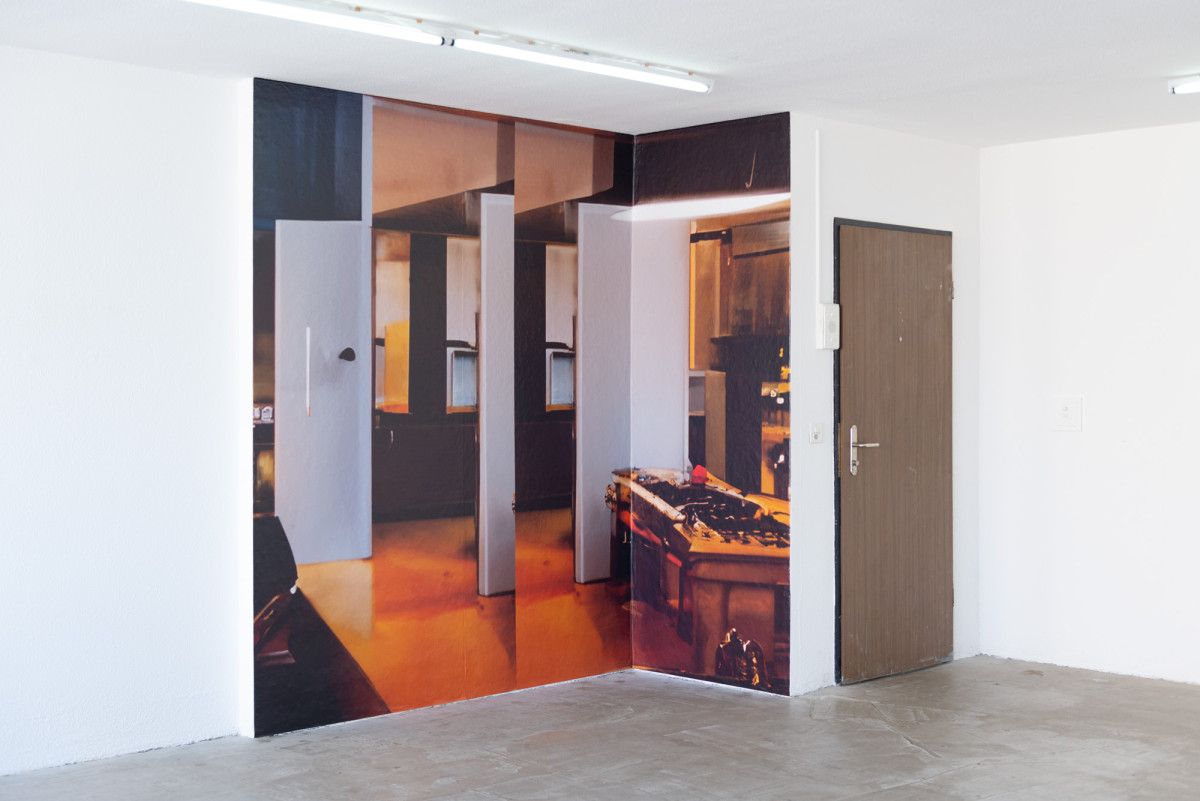
Wallpaper 1, 2024. Photo by Wilf Speller.
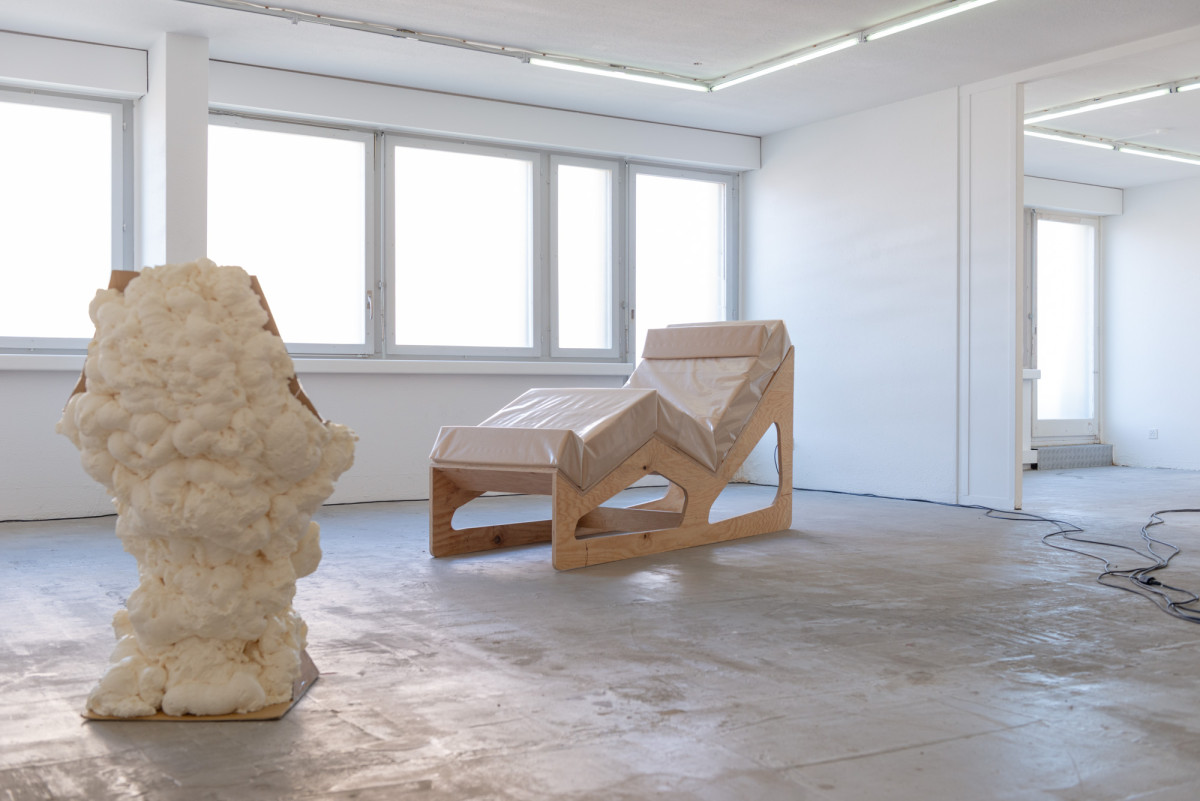
Installation view of «Welcome to the Backdome» at Hamlet, 2024. Photo by Wilf Speller.
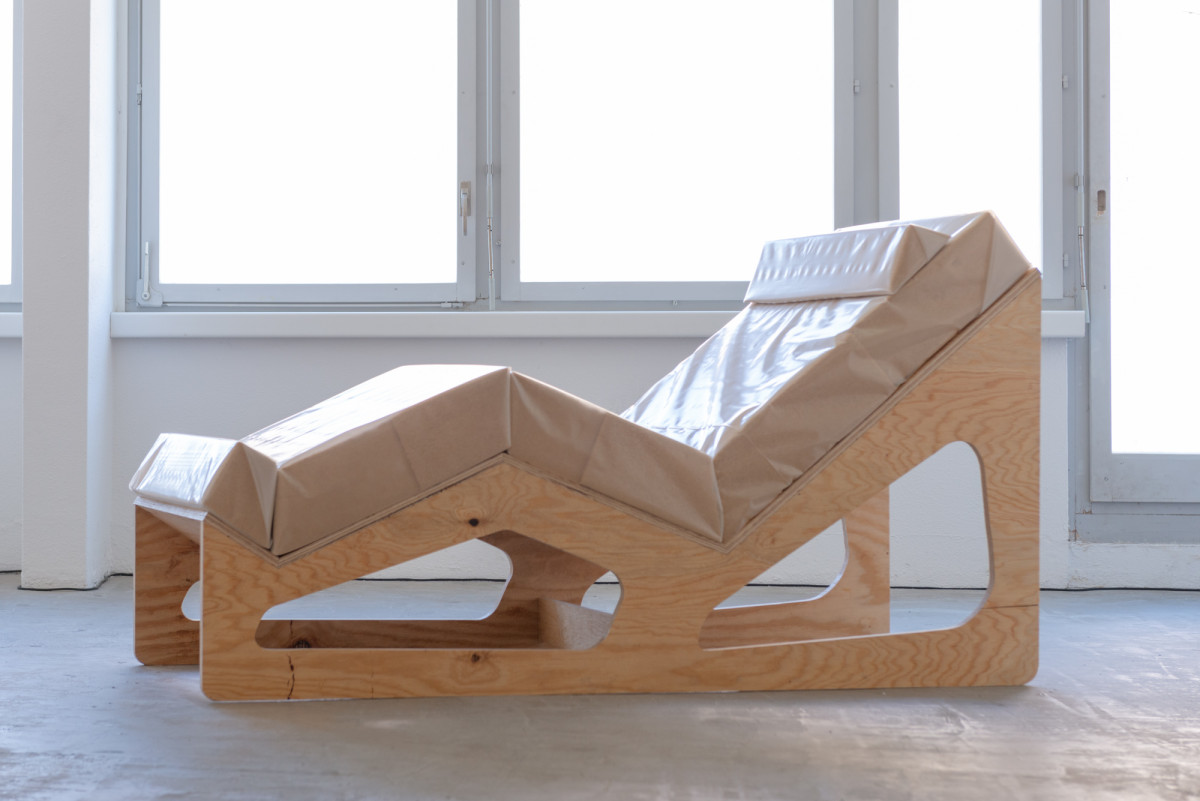
Object 1, 2023. Photo by Wilf Speller.
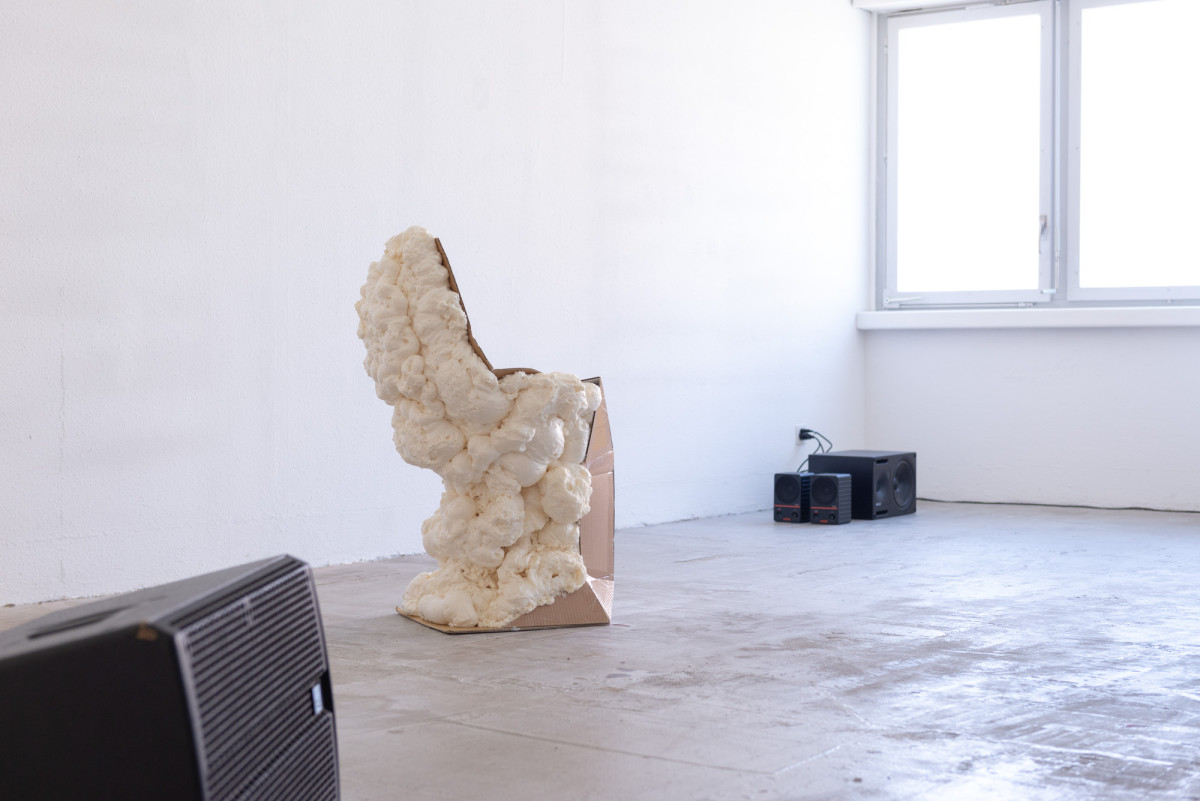
Installation view of «Welcome to the Backdome» at Hamlet, 2024. Photo by Wilf Speller.
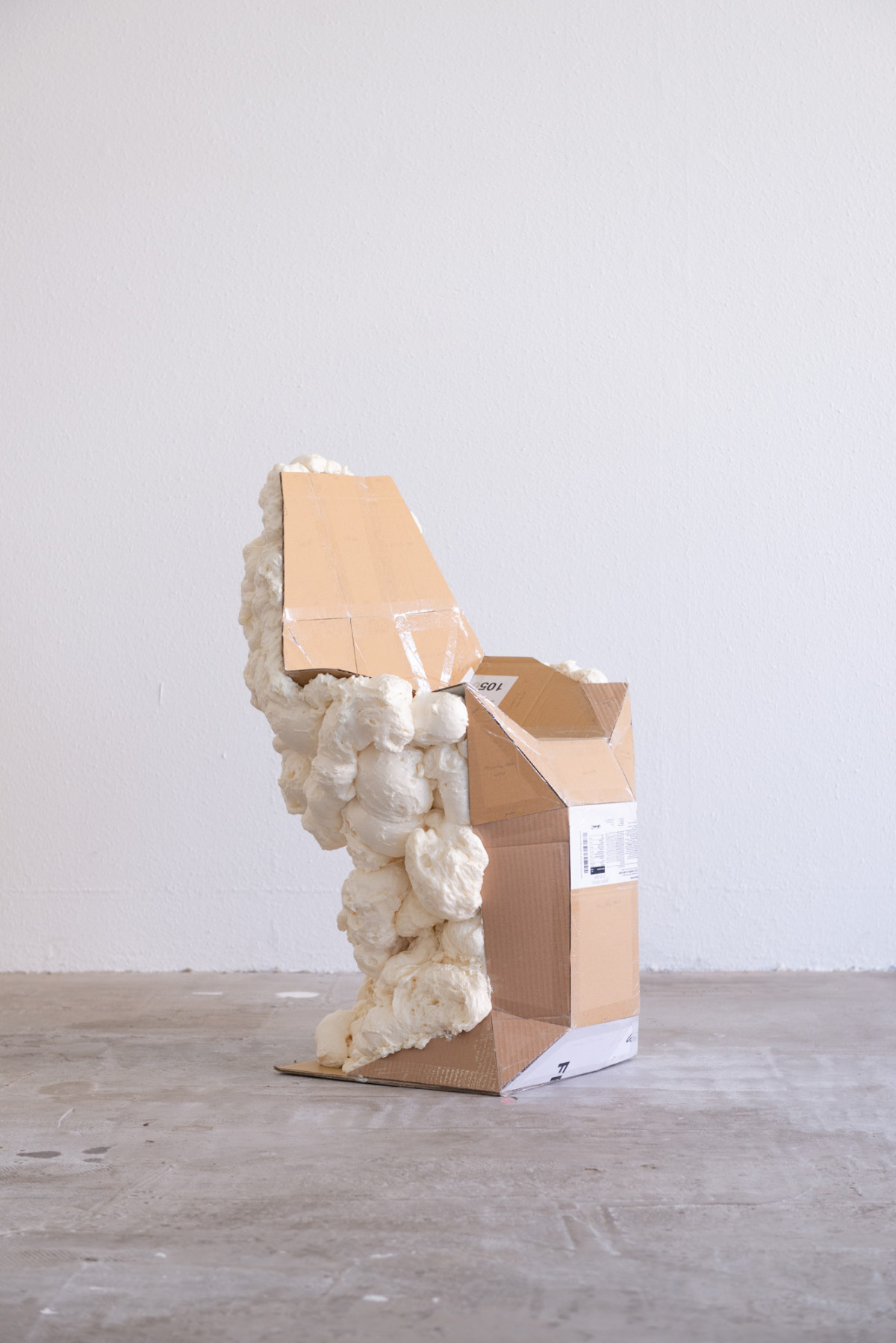
Object 2, 2023. Photo by Wilf Speller.
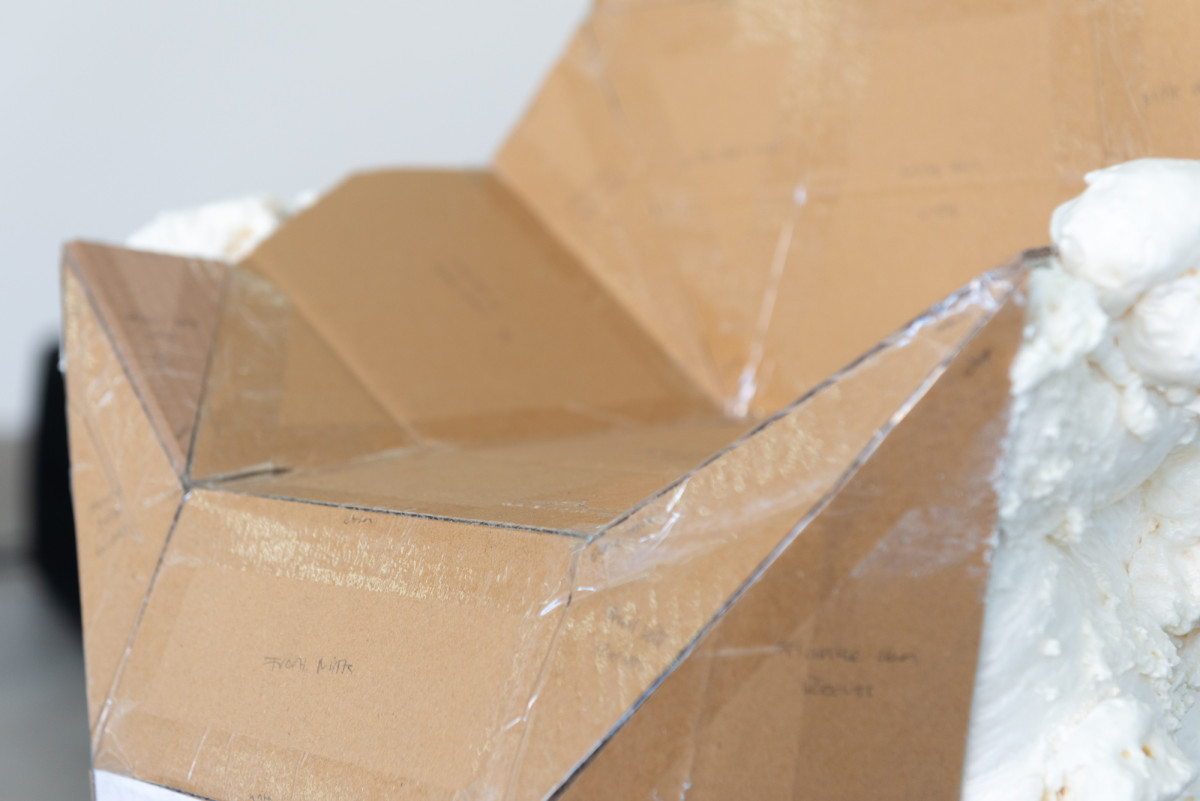
Object 2, 2023. Photo by Wilf Speller.
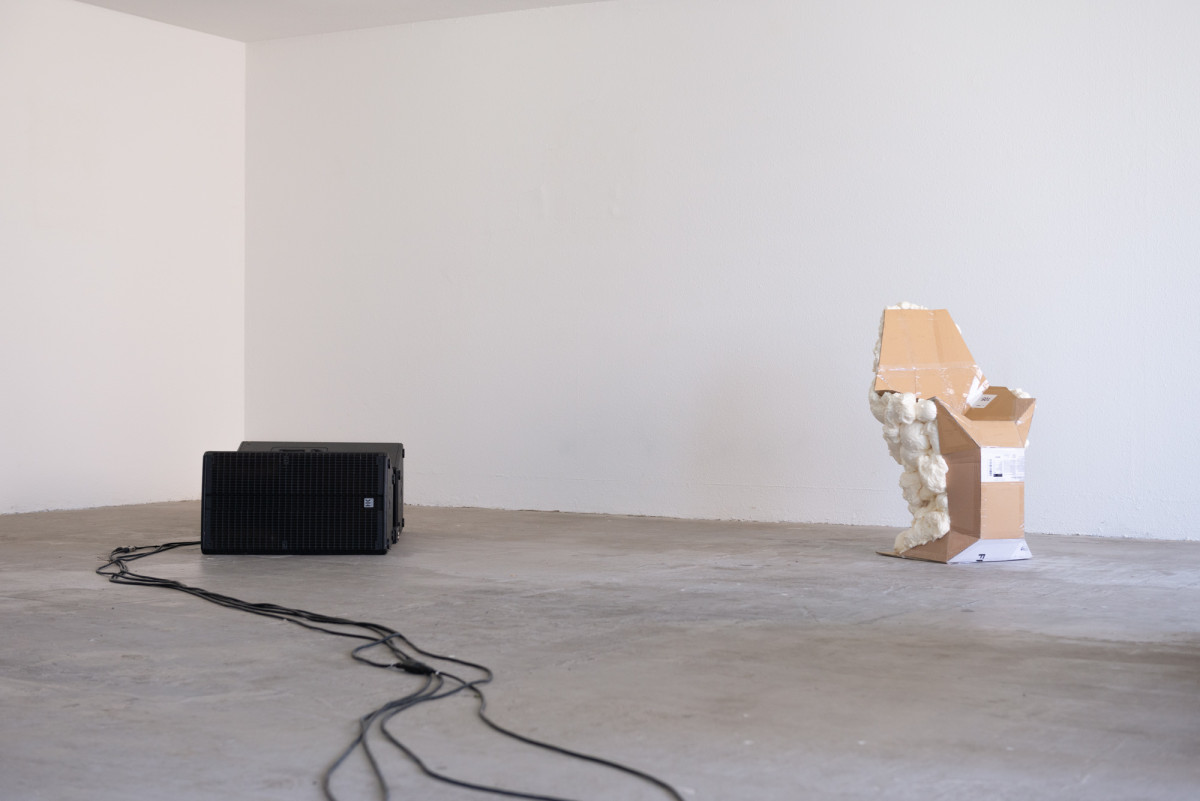
Installation view of «Welcome to the Backdome» at Hamlet, 2024. Photo by Wilf Speller.
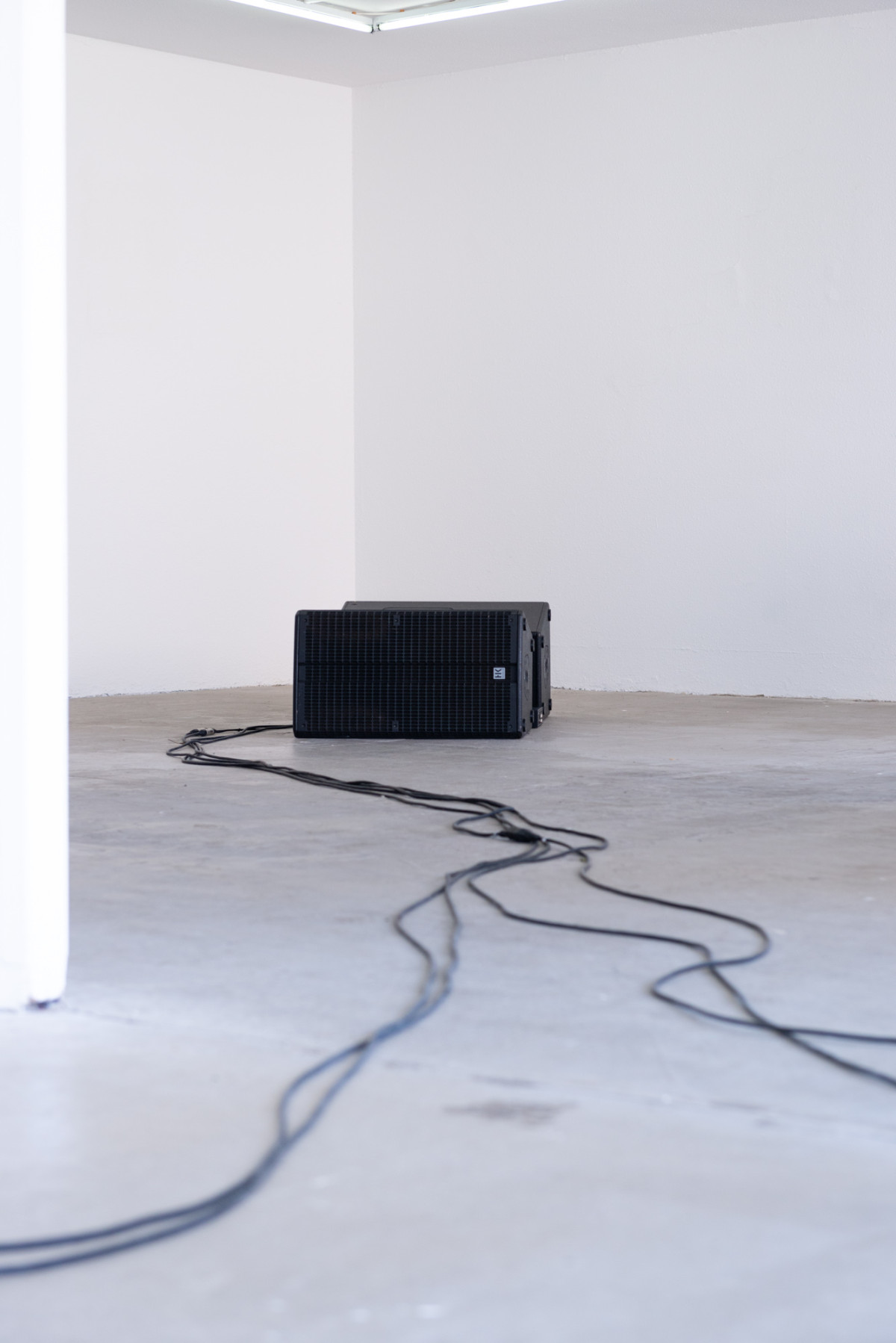
Jonas Huldi, enduring the unconditional (you knew it all your life), 2024. Photo by Wilf Speller.
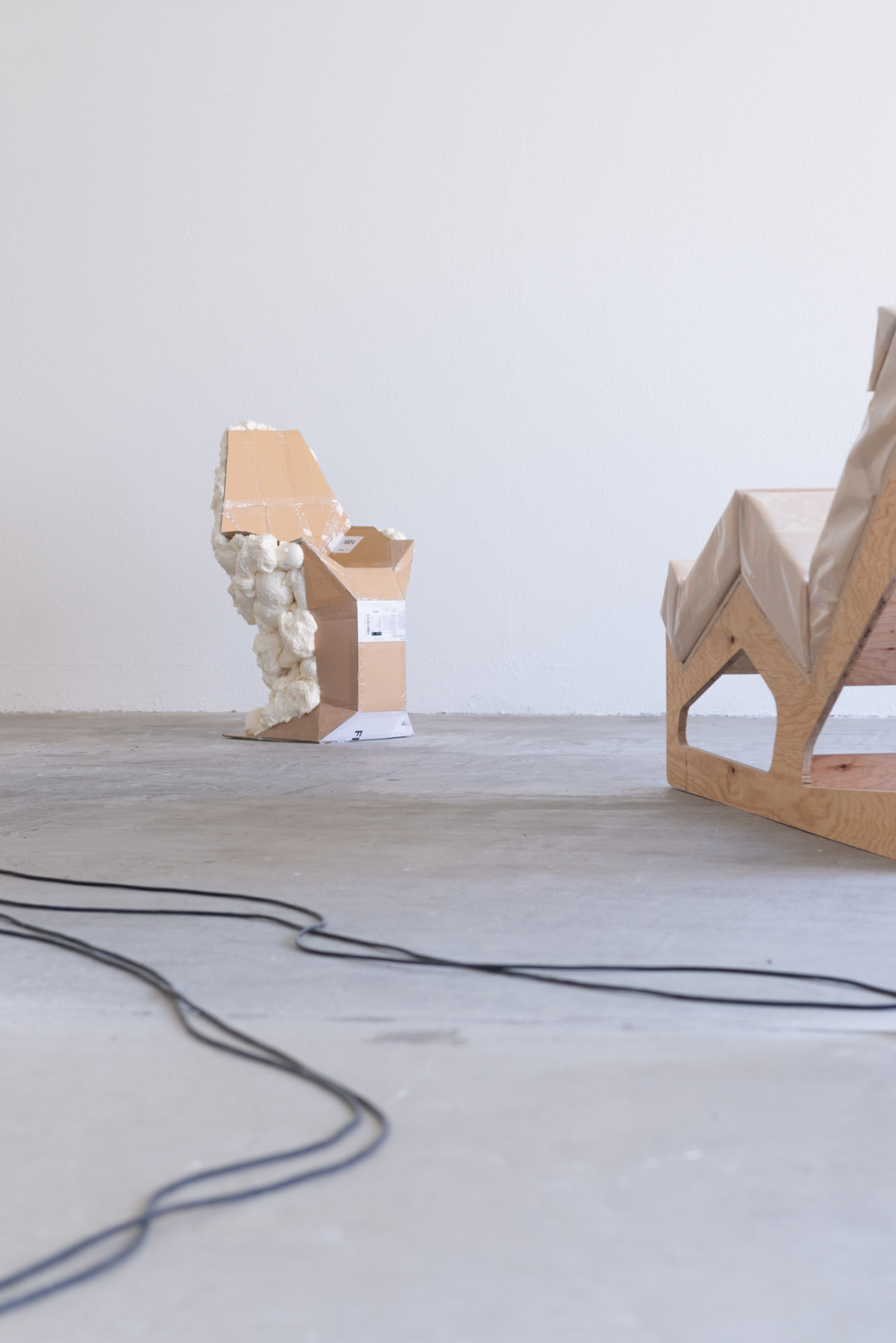
Installation view of «Welcome to the Backdome» at Hamlet, 2024. Photo by Wilf Speller.
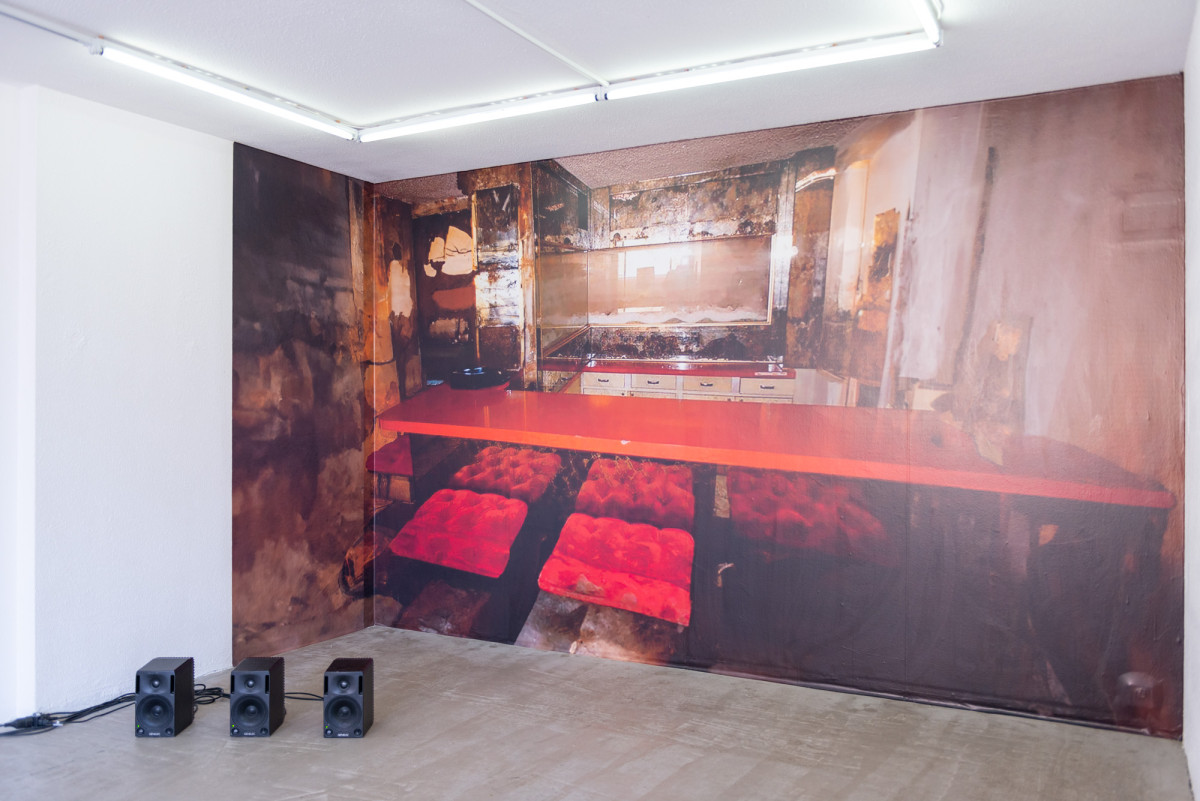
Wallpaper 2, 2024. Photo by Wilf Speller.
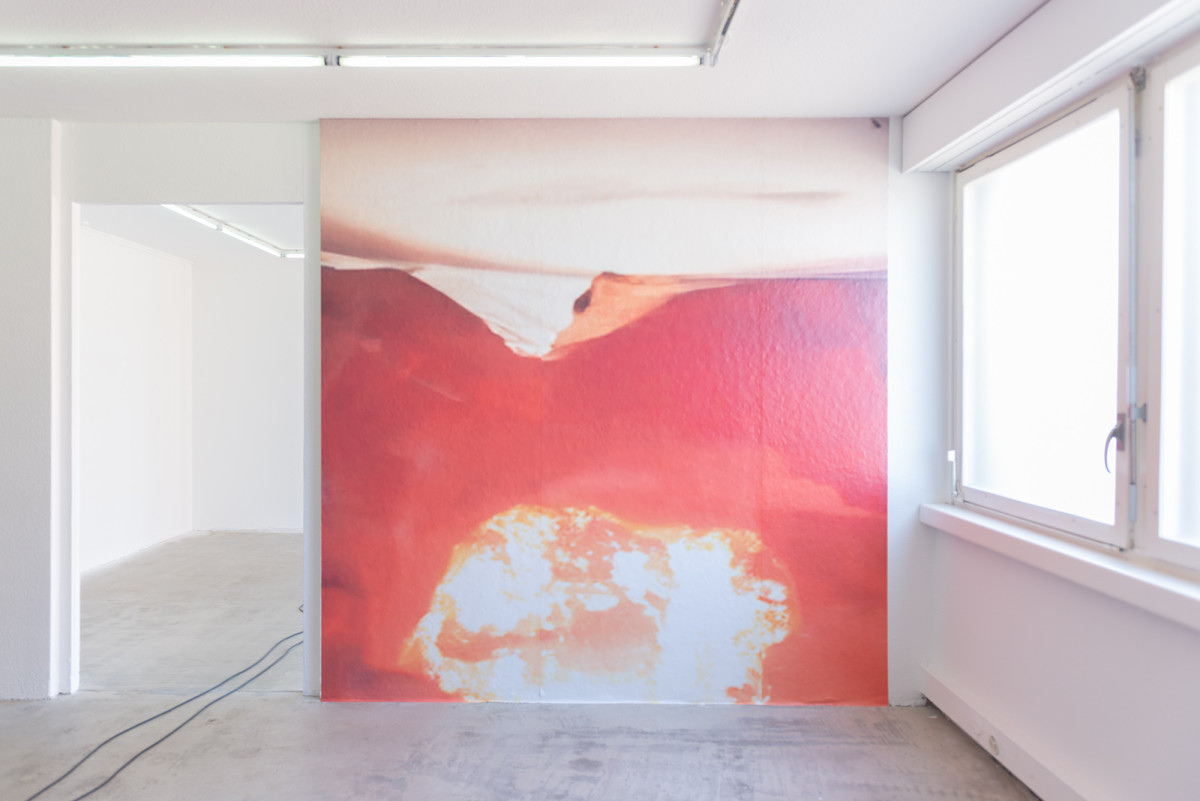
Wallpaper 3, 2024. Photo by Wilf Speller.
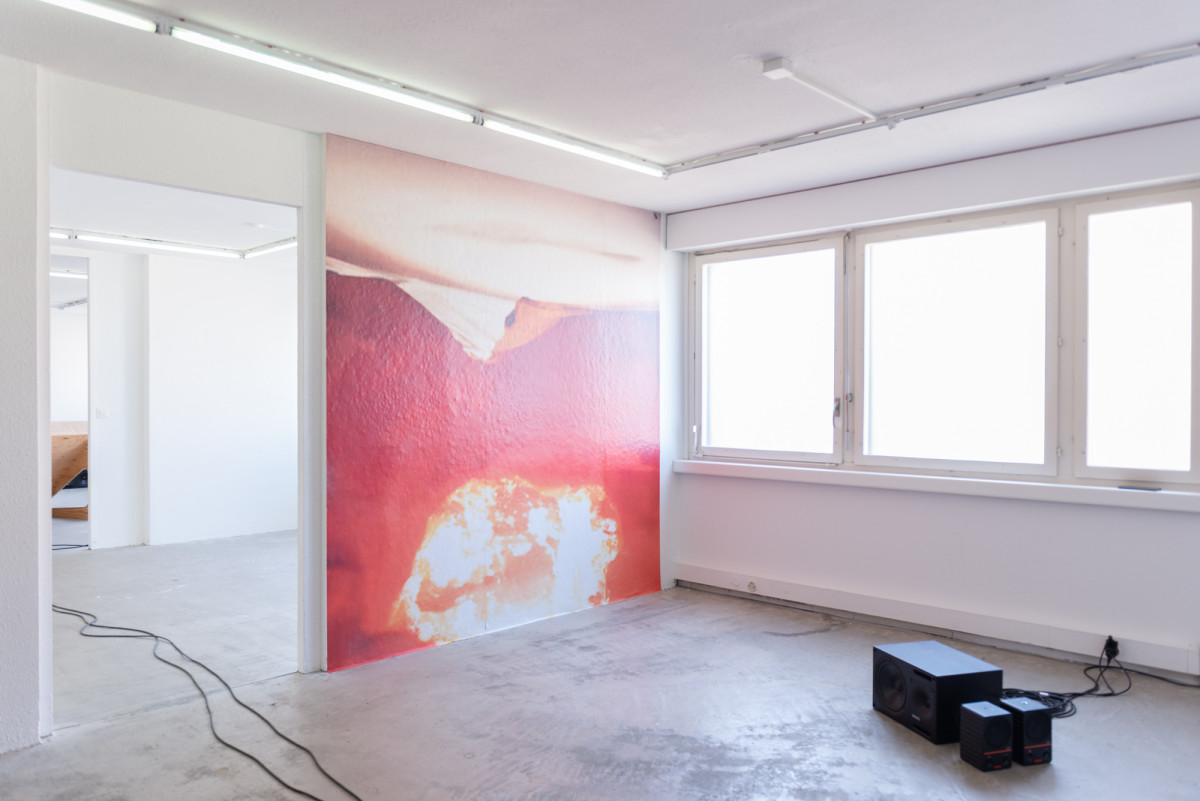
Installation view of «Welcome to the Backdome» at Hamlet, 2024. Photo by Wilf Speller.
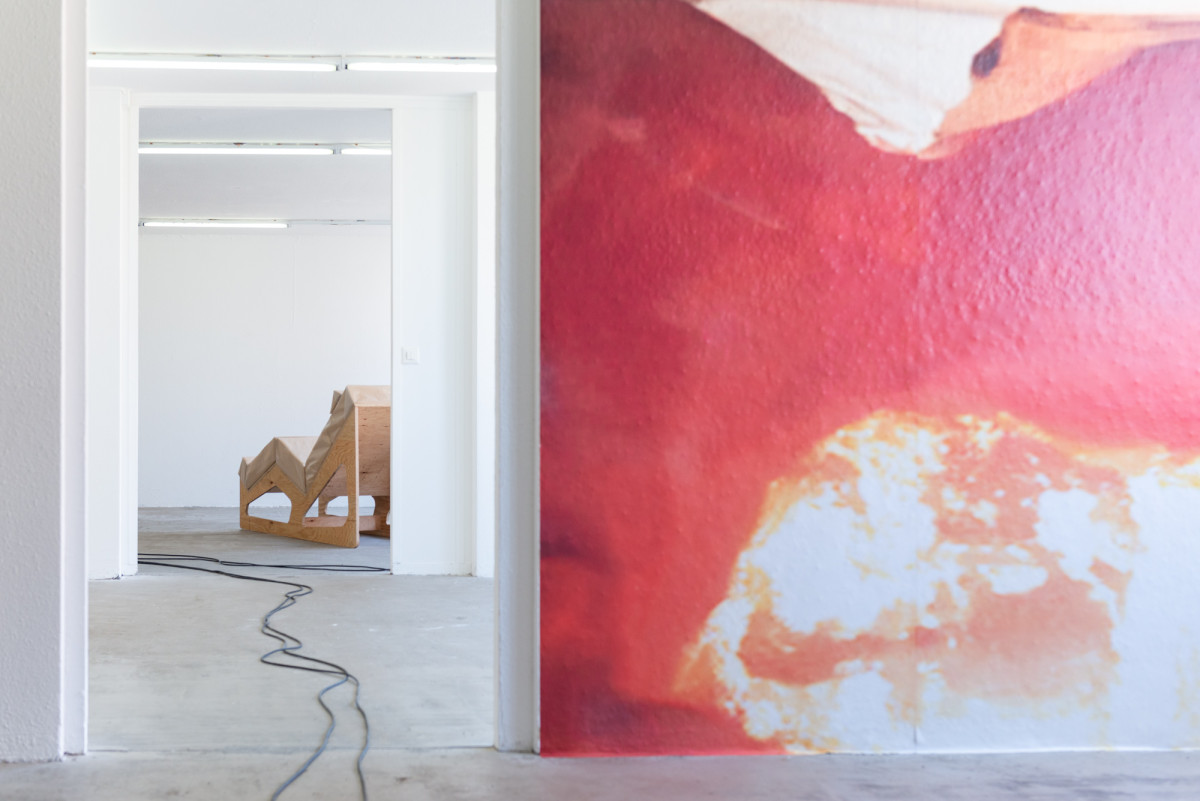
Installation view of «Welcome to the Backdome» at Hamlet, 2024. Photo by Wilf Speller.
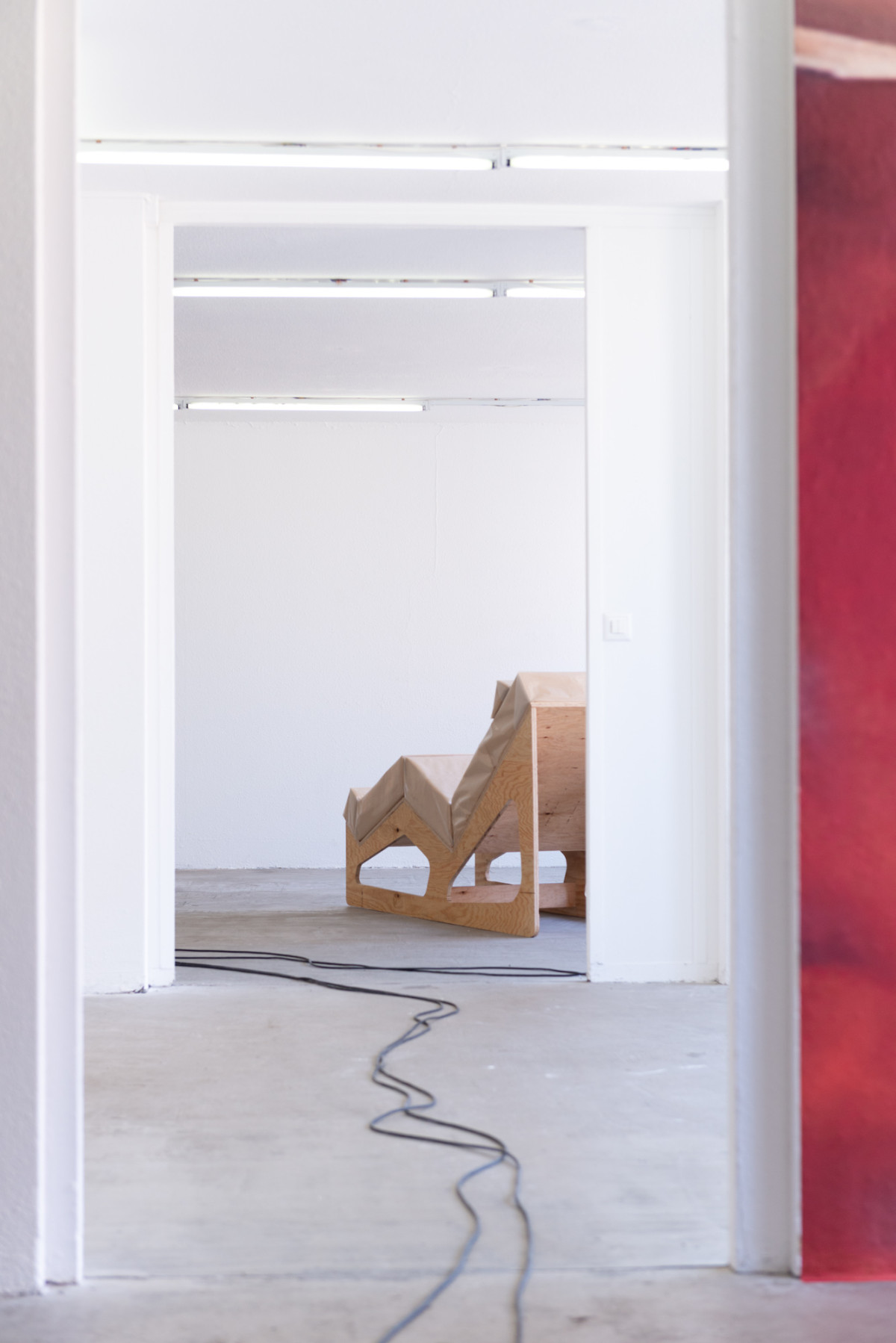
Installation view of «Welcome to the Backdome» at Hamlet, 2024. Photo by Wilf Speller.
- Raffaela Boss
